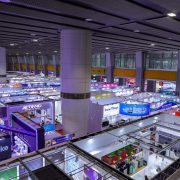KLM and Kenya Airways Drive Green Aviation with SAF Policy Breakthrough
KLM Royal Dutch Airlines and Kenya Airways (KQ) have led a major step forward for sustainable aviation in Africa.
The two airlines convened a high-level roundtable in Nairobi that resulted in a policy breakthrough to accelerate the adoption of Sustainable Aviation Fuel (SAF) across the continent.
For the first time, African aviation stakeholders reached consensus on key regulatory recommendations.
These include SAF blending mandates, producer incentives, and simplified certification processes, paving the way for large-scale production and use of sustainable fuels in aviation.
A Regional Push for Greener Skies
The event gathered 20 senior leaders from the International Civil Aviation Organization (ICAO), Kenya Civil Aviation Authority (KCAA), Kenya Airports Authority (KAA), the African Airlines Association (AFRAA), and the International Air Transport Association (IATA).
This discussion came at a crucial moment. Aviation contributes roughly 2–3 percent of global CO₂ emissions, and growth in Africa’s air traffic is projected to double by 2035, according to IATA. With this surge in demand, finding cleaner growth pathways has become urgent.
Participants focused on two priorities: creating strong policy frameworks and building the infrastructure required for widespread SAF use.\

KLM and Kenya Airways Drive Green Aviation with SAF Policy Breakthrough
Unlocking Africa’s SAF Potential
Sustainable Aviation Fuel, produced from renewable resources such as waste oils and agricultural residues, can cut lifecycle carbon emissions by up to 65 percent compared to conventional jet fuel.
Despite its promise, Africa’s progress remains slow due to limited regulations, logistics, and high costs.
Experts at the roundtable emphasized that coordinated government action is essential. Africa’s rich biomass resources, especially in East and Southern Africa, could make the region a global leader in SAF production.
However, this potential remains untapped without harmonized policies and clear incentives for producers and airlines.
One of the meeting’s key outcomes was the development of a regional SAF policy package. The proposal recommends blending mandates, tax breaks or subsidies for producers, and easier certification processes.
It also calls for closer collaboration among aviation authorities, governments, and private players to invest in SAF storage and blending facilities at major airports.
Building Skills and Shared Knowledge
The group also agreed to establish a joint SAF Action Roadmap to coordinate efforts across Africa. The roadmap will evolve as technology advances, setting milestones and investment priorities.
Initial pilot projects will begin in Kenya and the Netherlands, leveraging KLM’s experience in SAF procurement and KQ’s corporate SAF initiatives.
Another major outcome was a commitment to capacity building. The participants proposed joint training programs with academic institutions to develop local expertise in sustainable aviation and fuel technologies.
A Collaborative Path Forward
The engagement took place under The Aviation Challenge (TAC), SkyTeam’s annual sustainability initiative. TAC showcases practical actions by airlines to reduce aviation’s carbon footprint.
Nairobi was chosen as one of this year’s key hubs, with KLM operating showcase flights into the city throughout October.
Zita Schellekens, Air France–KLM’s Senior Vice President of Sustainability, Strategy, and Transformation, highlighted Africa’s potential. “Africa holds enormous promise for sustainable aviation, and collaboration is the key. Aligning policy, infrastructure, and innovation will unlock scalable SAF solutions tailored to regional strengths,” she said.
Kenya Airways Group Managing Director and CEO Allan Kilavuka added, “As Africa’s aviation landscape evolves, growth must be inclusive and sustainable. Kenya Airways is committed to building a SAF ecosystem that benefits our industry and our continent.”
Charting Africa’s Sustainable Flight Path
This initiative marks a turning point for Africa’s aviation sector. With KLM and Kenya Airways driving the conversation, the region is positioning itself for a cleaner, more resilient future in air travel, one that aligns with global goals to achieve net-zero emissions by 2050.
https://africabusinessnews.co.ke/vybcall-by-safaricom-and-huawei-debuts/
























Comments